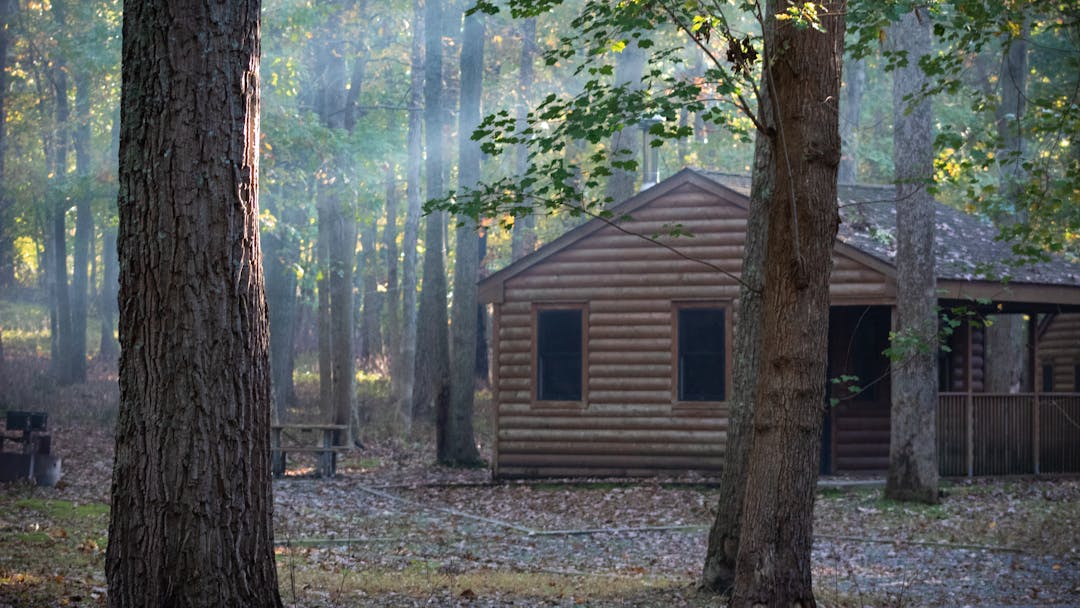Understanding Adverse Possession in Michigan
Michigan recognizes adverse possession, a legal doctrine allowing someone to acquire ownership of real property they’ve occupied for a specific period, even without a formal title.
The Statute: MCL 600.5801
The relevant statute governing adverse possession is MCL 600.5801 [MCL 600.5801], titled “Limitations of actions – real property.” It establishes time limits for filing legal actions regarding land ownership.
Subsection (4) is crucial, stating a 15-year limitation period “in all other cases under this section.” This implies that to gain title through adverse possession, one must continuously possess the land for fifteen years.
600.5801 Limitation on actions; time periods; defendant claiming title under deed, court-ordered sale, tax deed, or will; other cases.
Sec. 5801.
Elements of Adverse Possession
To successfully claim adverse possession in Michigan, the claimant (squatter) must demonstrate they possessed the property in a way that meets the following criteria:
- Actual Possession: This implies actively utilizing the land and regarding it as one’s possession. Infrequent or irregular use would not meet the criteria.
- Visible and Open: The possession should be evident to anyone observing the property. Fences, landscaping, or structures built demonstrate this.
- Notorious: The possession should be known or readily discoverable by the rightful owner. This doesn’t require the owner’s actual knowledge, but the use should be such that the owner could have discovered it with reasonable diligence.
- Exclusive: The possession should prevent others, including the rightful owner, from using the land.
- Continuous and Uninterrupted: Possession must be ongoing for the entire 15-year period. Gaps or breaks in possession could weaken the claim.
- Hostile: This doesn’t imply animosity towards the true owner. It simply means the possession is adverse to the owner’s rights, suggesting a claim of ownership independent of the owner’s permission.
We’ll Take That From You.
MCL 600.5821 addresses limitations for government entities [MCL 600.5821]. Government entities like municipalities and road commissions are generally not subject to adverse possession claims.
Additionally, the “hostile” element can be tricky. Permission from the true owner, even verbal, can disrupt the claim.
Consulting an attorney is highly recommended to assess the specific facts of a potential adverse possession case.
Potential Issues
Successfully establishing adverse possession allows the claimant to gain legal title to the property.
However, there are potential drawbacks. The process can be lengthy and require significant evidence. Additionally, if the true owner contests the claim, litigation can be costly.
Real Questions from Real Calls
Question: I have been living in a tent for 15 years in a Michigan State Park. Can I claim that property as my own under the adverse possession laws?
Unfortunately, you cannot claim ownership of the land in the Michigan State Park through adverse possession for a few reasons:
- Government Immunity: MCL 600.5821 exempts government-owned land from adverse possession claims [MCL 600.5821]. State parks fall under this category, meaning no matter how long you’ve resided there, you can’t acquire ownership through adverse possession.
While you’ve met the time requirement (15 years in Michigan), the other elements likely wouldn’t hold up either.
- Permission: Living in a state park typically requires permission, even if it’s just following camping regulations. This suggests you wouldn’t be able to establish “hostile” possession, a crucial element.
Here’s what you can do:
- Contact Park Rangers: Explain your situation to the park rangers. They might be able to offer alternative solutions, like designated camping areas or low-cost housing programs.
- Seek Legal Advice: An attorney specializing in property law can provide a more nuanced perspective on your situation. There might be other legal avenues to explore, depending on the specifics.
While claiming ownership through adverse possession isn’t possible in this case, there might be other options to consider.
Related Articles
Harris unveils new proposals targeting black men with cannabis legalization
"Harris unveils new proposals targeting Black men as she looks to shore up Democratic coalition" CNNAmid the ongoing national issues, Vice President Kamala Harris introduced new initiatives on Monday aimed at addressing the needs of Black men as she works to bolster...
Cleary becomes latest US law firm to add non-equity partners
See you in the Home Depot lot.Oct 10, 2024 (Reuters) Cleary Gottlieb Steen & Hamilton will create a new category of non-equity partners, becoming the latest major U.S. law firm to move away from the traditional single-tier structure in which all partners have an...
AG Nessel joined 21 attorneys general to regulate the sale of firearms
Extreme Risk Protection Order to prevent individuals from possessing or owning a firearm for eight years following their conviction. That legislation was signed into law by Governor Gretchen Whitmer in November of 2023.Michigan Attorney General Dana Nessel has joined...
Court Ruling – No bonus for growing weed
COURT RULING – SORRY NO BONUS FOR GROWING CANNABISA marijuana farm worker is unable to succeed in his breach-of-contract lawsuit regarding a $100,000 bonus he claims to be owed for producing a healthy harvest of 1400 pounds of dry cannabis crop as the contract is...
More Posts

Do Passengers in a Vehicle have 4th Amendment Rights?
Do Passengers have 4th Amendment Rights?Michigan Supreme Court Limits Police Ability to Search Passenger Property in CarsBackground Mead was a passenger in a car and...

Do Students Have 4th Amendment Rights in Schools
Students and 4th Amendment RightsStudents are entitled to a right to be safe from unreasonable searches and seizures even within school premises, as ruled by the...

Forfeiture Law: SCOTUS and Sixth Circuit Issue Landmark Rulings
Forfeiture Law in Focus: SCOTUS and Sixth Circuit Issue Landmark RulingsThe landscape of forfeiture law has been significantly shaped by recent decisions from the U.S....

Facial Recognition and Wrongful Arrests
Facial RecognitionHow Technology Can Lead to Mistaken-Identity Arrests Facial recognition technology has become increasingly prevalent in law enforcement, but its use...

People v. Chandler Case: Protecting Fourth Amendment Rights
Court of Appeals of Michigan PEOPLE of the State of Michigan, Plaintiff-Appellee, v. Javarian CHANDLER, Defendant-Appellant. No. 368736 Decided: June 27, 2024Before:...

MI Lawyer Weekly – Michigan’s Go To Lawyers for Cannabis Law
Please join us in congratulating our inaugural Michigan’s Go To Lawyer for cannabis law. Michael Komorn, Komorn Law, Farmington HillsMichigan Lawyers Weekly is pleased...

Chinese-funded marijuana farms springing up across the U.S.
Inside the Chinese-funded and staffed marijuana farms springing up across the U.S.During a farm inspection, New Mexico state special agents discovered an excessive...

AGs – Ex DEA Leaders for Push Public Hearing On Marijuana Rescheduling
State AGs And Former DEA Leaders Push Agency To Hold Public Hearing On Marijuana Rescheduling ProposalIn a filing with the federal government ahead of a key deadline...

I got a DUI while driving my dad’s boat – Will they take it?
I was out driving my dad's boat on the lake and I got caught drinking. Can they take the boat away from my dad who was not with me?Happy Father's Day - DadNo, in most...

Seattle settles case involving – the rights of nature
The Rights of NatureSeattle settled a lawsuit brought by the Sauk-Suiattle Tribe on behalf of salmon harmed by dams on the Skagit River. This is one of the first...
















